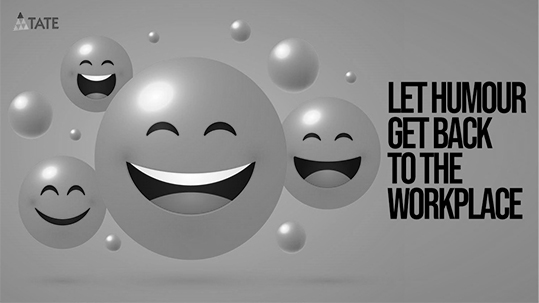“I always arrive late at the office, but I make up for it by leaving early.” ~ Charles Lamb
A colleague recently shared this humorous experience that occurred in a previous organisation. There came a time when people began writing their names on the food in the office fridge. One day, he mistakenly found himself eating a yoghurt called Pinky. How cute is that!
Now that our workplaces are slowly opening up post the pandemic, social distancing and economic uncertainty, it may not feel like a great time for humour in the office. But contrary to our feelings, it may just be what our office environments really need, to make people socially comfortable after long periods of social isolation.
It may be hard to bring humour into the workplace, if you’re amongst those who don’t see themselves as funny. But take heart, good humour can be learned and spread across the workplace. A recent research conducted by Jennifer Aaker and Naomi Bagdonas, who co-authored the book: Humor, Seriously: Why Humor Is a Secret Weapon in Business and Life, busts two common assumptions around humour:
# 1 That humour is about being funny. Actually it’s far ore than just cracking jokes… it’s about a mindset that cultivates joy.
# 2 The belief that you either have / don’t have a sense of humour. Reality is that everybody has a sense of humour… it’s all about how you see your life.
While there may be risks associated with certain styles of humour, there are huge benefits to fun and levity at the workplace. It was found that humour in the workplace tremendously contributes to people’s mental well-being, physical health and the bottom line. This clearly indicates that corporately, humour seems to be under leveraged and under invested in.
From a leadership and team perspective, the same research also pulls back the curtains on some very heartening stats:
- People who use humour at work are 23% more respected by colleagues. They’re also seen as more competent and confident leaders.
- Employees who see their leaders as humorous are 15% more satisfied and engaged with their jobs.
- Teams that laugh together before a meeting, are more likely to be honest about themselves, trust their colleagues, evolve more creative solutions and perform better.
Laughter can trigger the brain’s emotional reward centre, delivering a generous dose of feel-good dopamine and mood-lifting serotonin. It can even increase the release of endorphins, the pain-relieving chemicals our brain releases in response to such things as exercise, food and emotional highs. If you’re one of those cautious optimists like me, you may already be thinking: ‘Where or how do I start?’ Well, leaders have a license to try humour more, but need to be careful about what they say. Next, find something genuinely funny or self-deprecating about your workplace and share it with the team.
The tech and cognitive overload we’re all confronting, makes it harder to stay in touch with our humanity and sense of humour at the office. But levity at work could be the lever that levels all the ups and downs of the times. Changing our physiology and the lens through which we look at life, work and the future.
“You’re only given a little spark of madness. You mustn’t lose it.” ~ Robin Williams
In closing, we would do well to cling onto our unique brand of humour. All other therapies have invoices attached.

